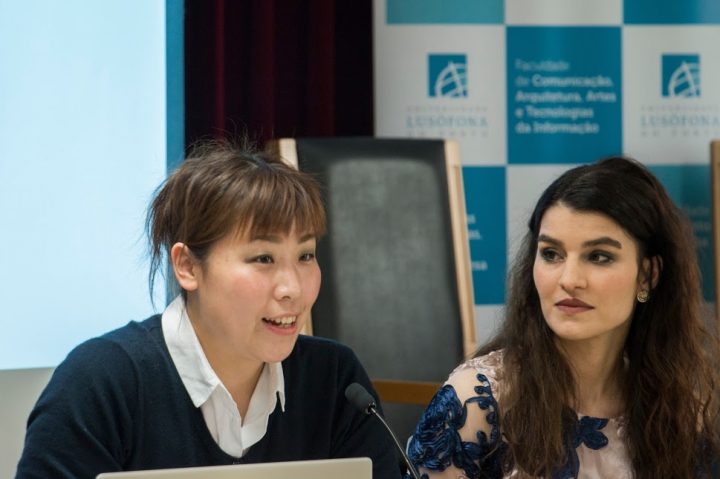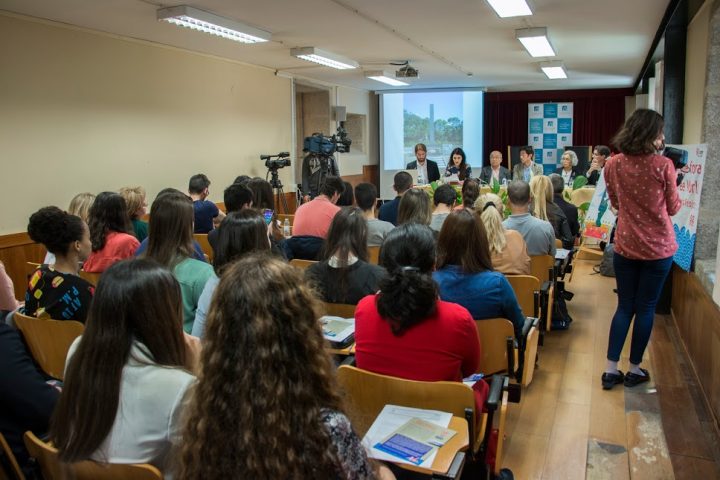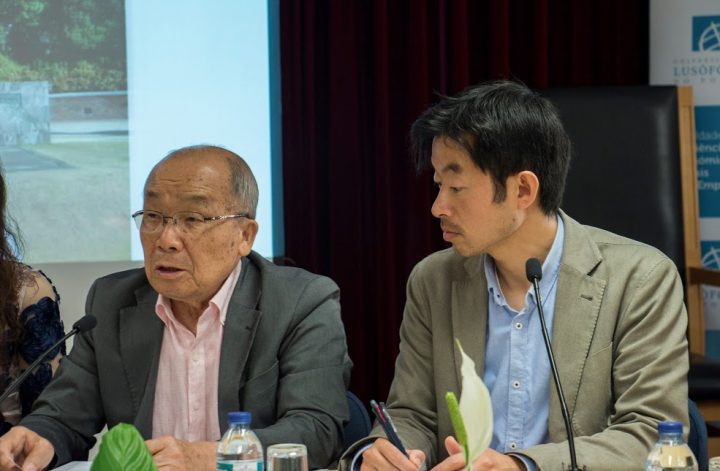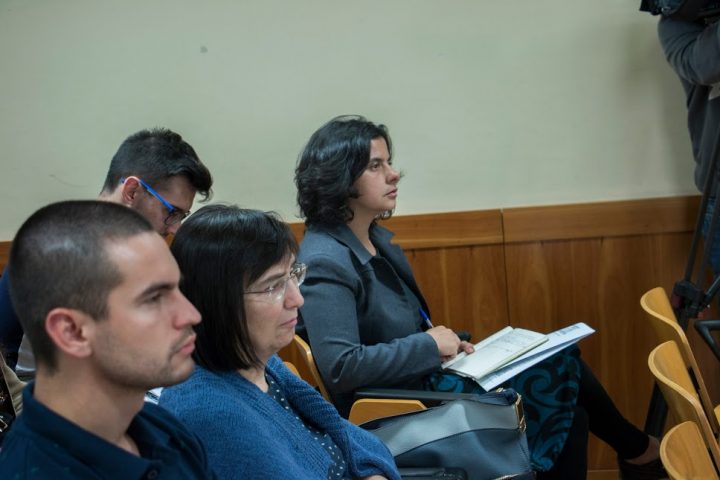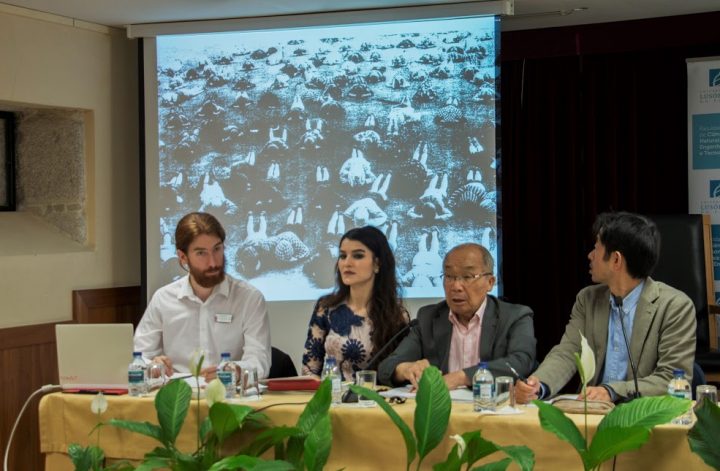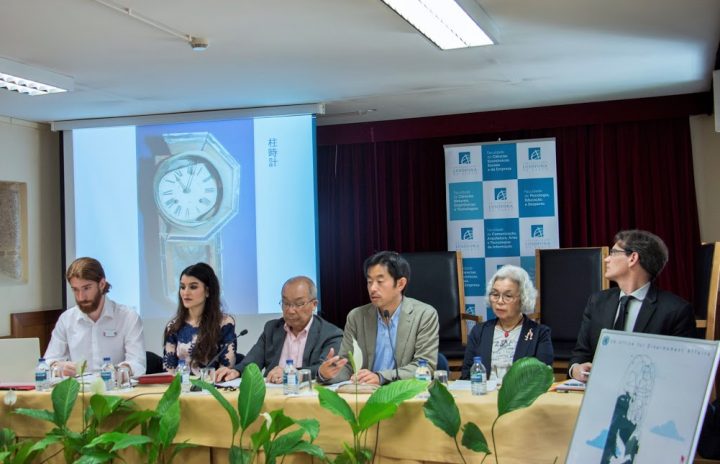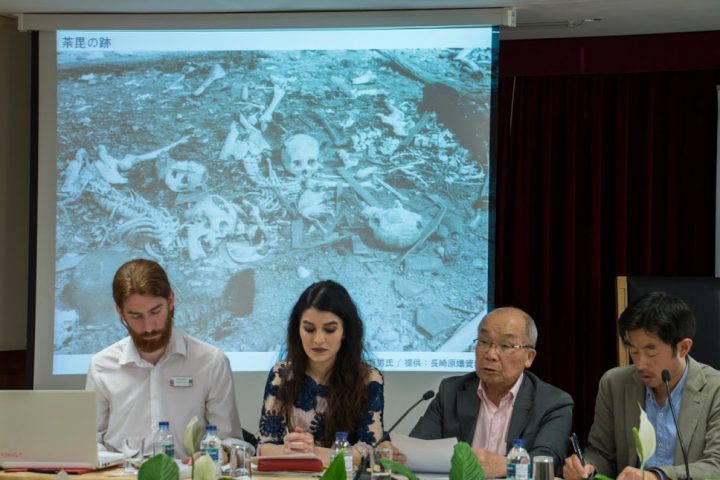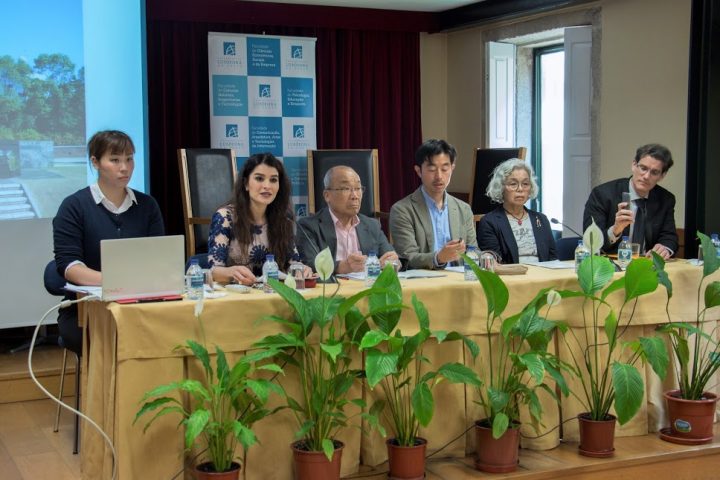Waiting for Portugal
To guarantee “a prohibition on production, acquisition, use, transport and threat of nuclear weapons” through a legally binding legal instrument is more urgent than ever. Jean Marie Collin, expert in questions of nuclear non-proliferation and disarmament called recently in Porto for demonstrations by civil society so that Portugal collaborates politically in the preparation of the treaty that will be negotiated at the United Nations in June. Portugal was the only Portuguese-speaking country to vote against the negotiations taking place.
Filipa Júlio (Text)/Américo Teixeira (Photos)
“With 131 countries voting to start negotiations in March this year, Portugal was the only Portuguese-speaking country to vote against the move. Maybe because it’s a part of NATO… But we are waiting for Portugal. We want Portugal to work with us next week in planning the treaty that will be negotiated in June in New York,” said Jean Marie Collin at an action organised by the Lusophone University on the humanitarian consequences of nuclear weapons and disarmament.
Through this “legal instrument it will be much easier to delegitimise and stigmatise the use of nuclear weapons,” so it will be important to remind civil society around the world of the tragedy that took place at the end of World War II. “When we hear the testimony of the survivors of the Hiroshima and Nagasaki explosions, we understand better that this is a real threat. It’s not something from the television. It’s real. It happened twice on two cities, on children, fathers, mothers, grandparents, in other words, on civil society”, he said.
And the truth is that, according to the director of PNND (Parliamentarians for Nuclear Non-proliferation and Disarmament) and vice-president of NDI (Nuclear Disarmament Initiatives), “we’ve been very lucky” in the face of new risks to the (dis)control of nuclear weapons.”
“Day by day we have a new risk: cyber-attacks. This could provoke problems with nuclear weapon command and control systems. We can also fear a terror attack based on nuclear weapons. This didn’t exist before, it’s something new and, therefore, we need to alert civil society. We know that the United States has already lost control of a few nuclear weapons due to problems that we don’t really know if they were IT problems or an attack. We know that hackers can carry out many evil actions against supposedly very well organised entities, such as the Pentagon in the United States and others, even in France. So, it’s necessary to be sure that there is no risk of hackers accessing nuclear weapons. The only way to guarantee this is by eliminating nuclear weapons,” he explained. Jean Marie Collin presented other facts. At the moment there are still 16,000 nuclear weapons spread around the world and the theory of deterrence, defended since 1945, clearly doesn’t work.
“Wars that have taken place since then show that disarmament is the only possible path to peace. Argentina attacked the Falkland Islands (under the dominion of a nuclear power, the United Kingdom) and we witnessed the Iraq War in 1991. The political leaders want to make war, they ignore the nuclear problem. And countries that have nuclear weapons and that, therefore, are implicitly threatening others are the same countries developing economic and cultural relationships,” he pointed out.
Two “Hibakusha” (the Japanese word for those affected by explosions) were travelling on Peace Boat. Mise Seiichiro and Tsuchida Kazumi, aged ten and four years old, respectively, were witnesses to the bombs on Nagasaki and Hiroshima and their humanitarian consequences.
Mise Seiichiro remembers well the 9th of August 1945 when people were cleaning their houses. I went to play with my musical instrument. I started to recreate the sound of the American planes, but it made my grandfather angry. When I closed the lid of the organ, a great light appeared in the sky. I did as I’d been taught, I closed my eyes and my ears and dropped to the floor. When the wind of the explosion stopped, I saw a house full of broken glass, the floor smashed in… everything had changed in a second. In the afternoon, black rain started to fall. At the school, it was impossible to distinguish the wounded. Some people were suffering so much that they asked to be killed out of pity.”
The survivor, now 82 years old, said that he wanted to see Portugal, the citizens of Porto and the students involved in this movement fighting against nuclear weapons very much. “On the 15th of June, we are going to present our ideas in New York, in the negotiating conference so that nuclear weapons may be abandoned for ever. We hope to count on the support of Portugal.”
Speaking in Japanese, but with strong emotion emanating from her voice, Tsuchida Kazumi, survivor of the Hiroshima bomb spoke about her deep concern for the strength of today’s nuclear weapons. “They say that they’re up to 100 times stronger than those used in Hiroshima and Nagasaki. The entire human race is at risk.”
Despite the fact that the United States and other nuclear powers will not sign the treaty, there is the real opportunity that it will be ratified in July, once the rest of the world wants to abolish nuclear weapons.
And in order to help the process, Jean Marie Collin, also a representative of ICAN, a partner organisation of Peace Boat, hopes that Portugal will take the important diplomatic role as a State Party to the Nuclear Non-Proliferation Treaty,” to join this initiative. “Portugal has the opportunity to play an important diplomatic role as the UN Secretary General is Portuguese.”
https://www.change.org/p/join-the-hibakusha-appeal-for-a-nuclear-ban-treaty
